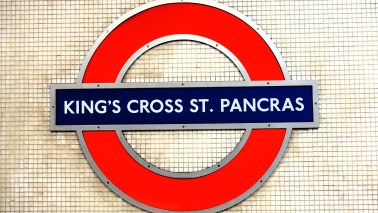The housing market indices have stabilised, started rising even. So is that it? Is the great housing market crash over, before it had had a chance even to begin? Not according to the Office for Budget Responsibility (OBR). Buried in its latest Economic and Fiscal Outlook report is a prediction that the slump is far from over. Average prices, it forecasts, will fall by 4.7 per cent in 2024 and will not return to their 2022 levels until 2027. Transactions, the OBR believes, will also plummet by a further 6.9 per cent next year. While that might not bother homeowners so much it certainly will affect estate agents, who live or die on volumes of transactions rather than on prices.
There is another thing about the housing market. Unlike the stock market, it is deeply emotional
No wonder I read an estate agent in the press last week doling advice to what he termed ‘last time sellers’ – i.e. elderly people selling up and moving to a smaller place which will likely turn out to be the last move they make, save for into a wooden box. Don’t leave it too long, he pleaded, flog your family home while it is still full of happy memories and before it becomes a burden – and if your family want to come and stay why not point them to the B&B up the road (if it is still going after Covid). I have half a feeling it wasn’t so much the happiness of elderly property owners he had in mind as the fate of his own business. I think I might just hang onto the family home a little bit longer, if it is all the same to him, rather than help pay his kids’ school fees.
It would be quite extraordinary if we didn’t see a deeper hole in the property market. Prices certainly responded quickly when interest rates started falling in 1992 and again when they were brought down to a 400-year low in 2009. So surely one might expect them to respond to a sharp upward jolt to 5.25 per cent. Proportionally we have just experienced the biggest ever jump in the Bank of England’s base rate – up 50-fold from its pandemic low of 0.1 per cent and in just two years. Moreover, the buy-to-let market has been hollowed out by changes to taxation, which are encouraging investors to sell before their capital gains tax rises.
Balanced against that, rents have just risen by 9.7 per cent in a year as a property shortage takes hold. There simply isn’t enough housing to meet demand. We have just had net migration of over 700,000, but we added only 230,000 dwellings in England over the past year. Half of 18 to 29 year olds are still living with their parents. If these people can possibly stretch themselves to afford a home, many of them will.
But there is another thing about the housing market. Unlike the stock market, it is deeply emotional. Once homeowners have got a figure in their heads of what their home is worth, it is extremely difficult to shift it – if they can’t get what they want, they simply won’t sell. Such a mentality does not generally rule a fund manager’s head as he contemplates whether or not to hold onto a tranche of BP shares. As someone put it this week: house buyers currently think it is 2009 – the bottom of the last slump – but house sellers think it is 2021.
As a result, the housing market tends to stick rather than crash. The OBR may well turn out to be right – no great crash, but it could take years before there is any meaningful rise in house prices.
This article is free to read
To unlock more articles, subscribe to get 3 months of unlimited access for just $5








Comments
Join the debate for just £1 a month
Be part of the conversation with other Spectator readers by getting your first three months for £3.
UNLOCK ACCESS Just £1 a monthAlready a subscriber? Log in